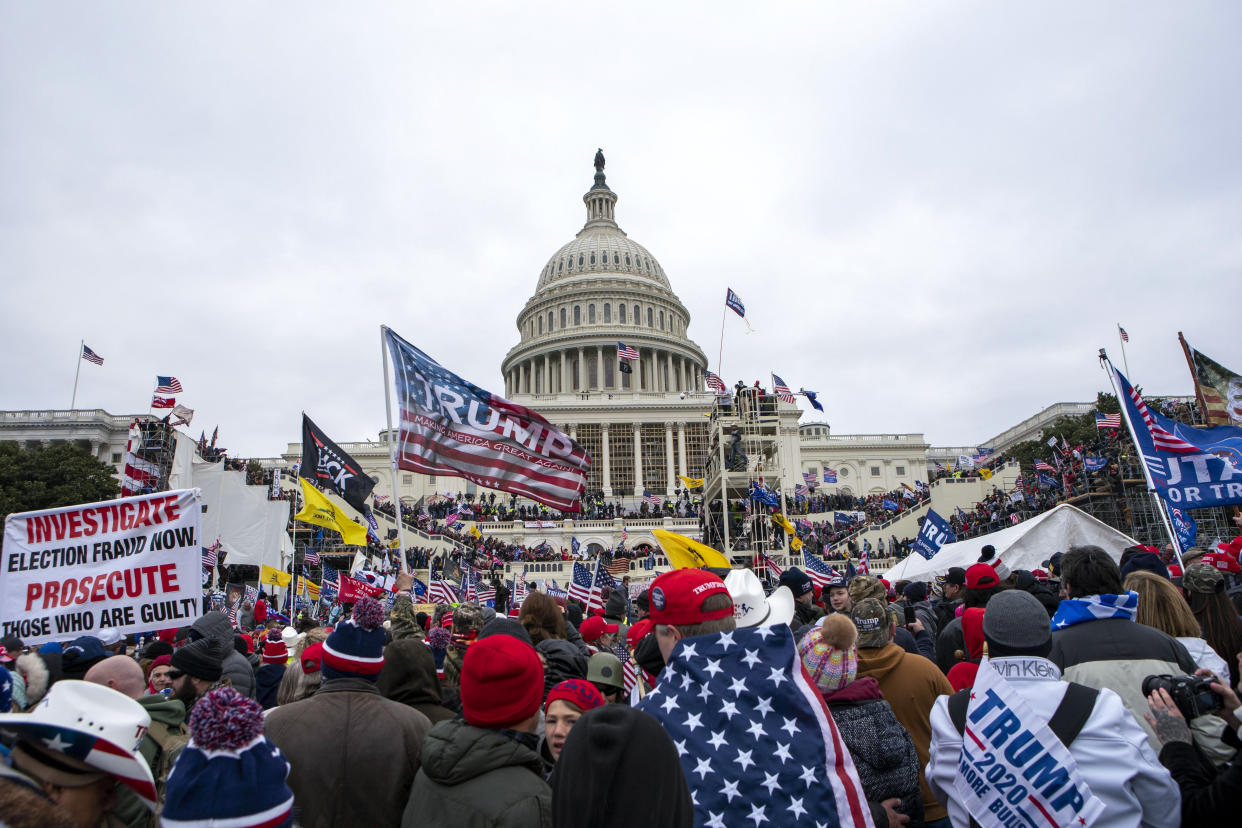How the Supreme Court could upend the DOJ's Jan. 6 case against Trump

While Donald Trump sat in Manhattan Criminal Court on Tuesday for the second day of jury selection in his hush money trial, the justices of the Supreme Court heard oral arguments in a different case that could have significant implications for one of the other criminal prosecutions the former president faces.
The case under consideration in Washington, D.C., was brought by Joseph Fischer, a former Pennsylvania police officer who faces up to 20 years in prison for allegedly participating in the mob of Trump supporters who stormed the U.S. Capitol on Jan. 6, 2021, while Congress met to certify Joe Biden’s win in the 2020 presidential election.
Specifically, Fischer is appealing a charge that stems from an Enron-era financial law the Department of Justice has applied to many of the Jan. 6 defendants, and that special counsel Jack Smith used to charge former President Trump himself.
If the justices, who are expected to rule on the case in June, agree that the DOJ misapplied the law in Fischer’s case, Trump — and hundreds of others allegedly involved in the Jan. 6 attacks — could do the same.
What happened today
At the heart of the case is the Justice Department's use of the Sarbanes-Oxley Act, which was passed in 2002 in the wake of the Enron financial scandal. The law criminalizes efforts to obstruct, influence or impede any official proceeding. While Sarbanes-Oxley was initially intended for financial misdeeds, the DOJ says Jan. 6 rioters violated this law when they attempted to impede Congress’s certification of electoral votes on Jan. 6, which it considers an official proceeding.
Fischer’s attorney argued before the court on Tuesday that the DOJ was overreaching and the law was intended to stop physical evidence tampering — not riots.
“Until the January 6 prosecutions, Section 1512 C2 (a subsection of the law) had never been used to prosecute anything other than evidence tampering. That was for good reason,” Jeffrey Green said in his opening arguments. “The Jan. 6 prosecutions demonstrate that there are a host of felony and misdemeanor crimes that cover the alleged conduct. A Sarbanes-Oxley-based, Enron-driven evidence-tampering statute is not one of them.”
Meanwhile, Solicitor General Elizabeth Prelogar, defending the law for the government, held that it was being applied appropriately.
“On January 6, 2021, a violent mob stormed the United States Capitol and disrupted the peaceful transition of power,” Prelogar said. “Many crimes occurred that day. But in plain English, the fundamental wrong committed by many of the rioters, including petitioner, was a deliberate attempt to stop the joint session of Congress from certifying the results of the election.”
How could this affect the DOJ case against Trump?
Tuesday’s arguments could have implications far beyond one Pennsylvania police officer.
In the case brought by Smith, Trump is charged with two counts of obstructing and conspiring to obstruct an official proceeding under the Sarbanes-Oxley Act.
If the Supreme Court rules in favor of Fischer, it means Trump could also try to dispute those charges against him.
However, even if Fischer wins, Trump won’t be fully in the clear. The DOJ and Smith laid out in a filing to the Supreme Court that they will still pursue obstruction charges against the former president.
Furthermore, Fischer's case rests on a different legal argument than Trump's. The charges against Trump accuse him of being the ringleader of a scheme that involved Republican officials submitting a slate of false electors to Congress to claim Trump won those states. This means Trump's case involves allegations of fake documents, a narrower definition of Sarbanes-Oxley that in fact aligns with the argument Fischer's attorney is making.
How could this affect Jan. 6 defendants?
The Supreme Court hearing of the Fischer case is already having an impact on convicted and sentenced Jan. 6 rioters in prison. Federal judges in D.C. have agreed to release about 10 defendants either in custody or serving prison time, saying they could wait at home since the high court could take months to decide whether the law should have been used in the first place.
If the Supreme Court rules in favor of Fischer, it would require resentencing for those who have already been convicted and sentenced. For those charged by the DOJ with this one offense, those charges could be upended.


